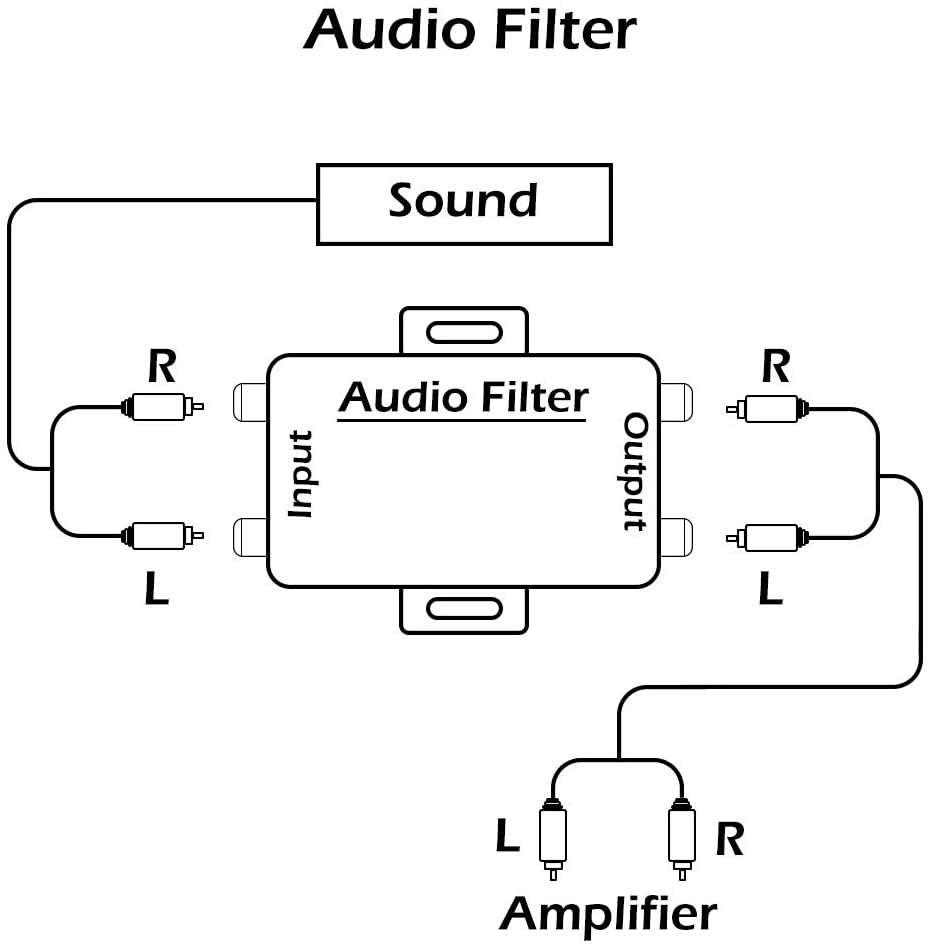When you first notice the high-pitched sound coming from your car speakers, it can be pretty annoying. But what is causing this sound?

This guide will help you identify the cause of this problem and provide a few solutions on how to fix it. Stay with us!
Why Car Speakers are Making High Pitched Sound?
In about 90% of the cases, high pitch sound in your car audio system is caused by alternator whine. Alternator whine refers to sounds that come from your car audio due to interference by power cables in the audio signal cables.
There is an easy way to figure out whether it’s alternator whine in car audio or not. If the high-pitched sound increases when you accelerate and decrease when the car runs slow.
To solve this issue, you’ll need to find the reason behind this. We’ll go over that in the next section.
How To Fix Alternator Whine in Car Audio?
There are multiple reasons that may cause alternator whine in the car audio system. But the solution can be a simple noise filter installation in the audio system.
Before making the final decision on installing a car stereo noise filter, it’s best to try and eliminate the root cause of the issue-
Make Proper Ground Connection
If the ground wire of your car audio system is not connected properly, it can cause alternator whine. Make sure that all the connections are grounded well to bare metal surface.
On many occasions, you’ll see that the ground connection is in place and still there is a problem with the car audio. In such cases, it may be a ground loop interference as well.
Get Rid of Ground Loop Interference
Ground loop interference happens due to poor wiring and improperly grounded vehicle audio system. This simply means that different components of the car audio are grounded in different grounding surface.
One way to get rid of this interference is by using a ground loop isolator. This will separate the ground potential and stop the noise from entering your audio system.
For your convenience, we have researched and picked this BESIGN Ground Loop Isolator for Car Audio or Home Audio. This is a plug-and-play device and works great for almost any type of audio system.

Check all the Battery Connections
Loose battery connections can also cause problems in the sound system. Make sure that all the connections are tight and there is no corrosion on the terminals.
When batteries corrode or go bad, system noises like high-pitched whine is bound to happen. So, it is recommended that you check the connections of your car battery at regular intervals.
Make Sure the Alternator is Good
High pitched noise in the car audio can be caused by the alternator itself. If your car is not charging fully, you will have to replace the alternator immediately. However, getting a new alternator is not the only solution to this problem.
If the wires are damaged, the charging system may see a hard time feeding the battery with enough power it requires. So, start with cables and other components before you finally move to the alternator itself.
Use Twisted Pair Cable Instead of Coaxial Cables
When you replace the coaxial cables with twisted pair cables, it eliminates the interfering signal and improves performance. Coaxial cables introduce interference and noise which results in a buzzing sound.
Twisted pair wires allow for a better quality of sound and improved performance. They also reduce the buzz or high-pitched sound that is typically associated with interference on car speakers or audio systems.
Amplifier Connections are Incorrect
If you have amps in your car audio system, it can become difficult to operate the cables. Even a slight mistake when connecting all the wires together will produce a high-pitched sound that is unbearable for most people.
Make sure that all the connections are correct and well-grounded. Also, make sure that speaker wires do not touch each other and that the amplifier itself is not touching the grounding surface of the car audio.
Keep RCA Cables Away from Power Cables
When you have RCA cables and power cables running next to each other, it can cause a lot of interference. The best way to avoid this is by using splitters and keeping the power cables away from the audio signal cables.
This will help in eliminating noise and improve the quality of your car’s audio system.
Poor shielding in the power cable or car radio wire can also cause this issue despite keeping them well away from each other. In that case, replacing the cables is what we recommend for protecting electrical equipment and speaker whine in the car.
If nothing is helping you to eliminate the noise or you want to go with the straighter route rather than the complicated diagnosis and fixing process, you may consider installing a car stereo noise filter in the system. This will filter out the whining noise and give you a clear and crispy sound.
How to Install Car Stereo Noise Filter?
There are a few ways to install a car stereo noise filter. You can either use an inline noise filter or use a noise filter between the alternator and the car battery.
Inline filters work by filtering out the noise when the signal is passing through them. This means that they need to be installed between the audio source and amplifier.
Follow this easy illustration to connect inline noise filter-

Power supply filters, on the other hand, work by filtering out noise from power cables. They need to be used in power cables behind your car stereo unit. And the installation is simple here as well, you can simply connect them matching with the same colored wires and black one to the grounding point.
For convenience, here are two noise filters that we found to be working great-
Inline filter: Car Audio Noise Isolator Filter Radio Noise Eliminator
Power filter: Pipeman’s Installation Solution 10 Amp Inline Power Noise Suppressor Filter
Both of these filters are designed specifically for your car audio system and can help you eliminate that high-pitched sound completely without any hassle at all.
Conclusion
The high-pitched sound emitting from the car speakers is caused by various factors, but it can be fixed with a few DIY steps.
If you are hearing this noise coming out of your speaker system, check for corrosion on battery terminals and replace them if necessary.
Also, make sure that the alternator is charging properly by checking for damaged wires or other components before replacing it entirely.
You may also want to use twisted-pair cables instead of coaxial cables because they reduce interference which results in buzzing sounds.
And finally, keep RCA cables away from power cables so as not to create more noise within your audio system.
For quick fixes or even an all-inclusive solution, installing a car stereo filter should provide relief without any hassle at all!